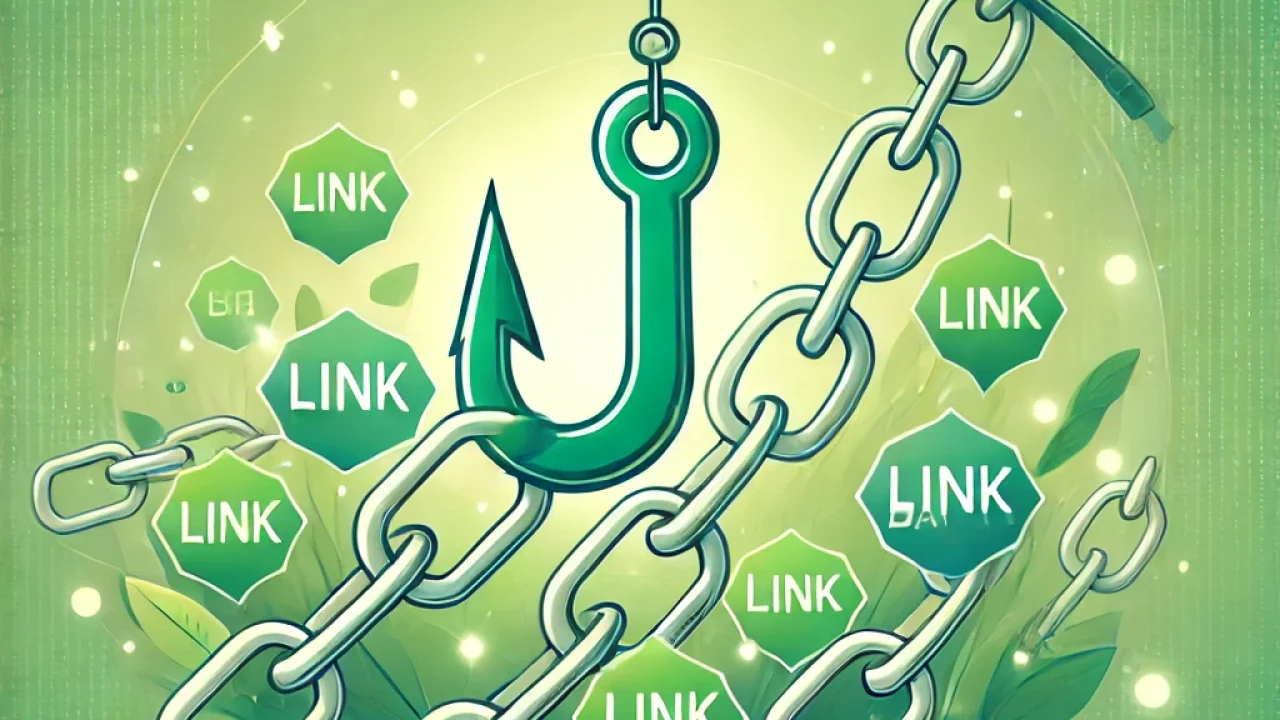Learn how to unlock the power of link baiting to boost your backlink growth. Discover strategies, benefits, and the role of Domain Authority in enhancing your website’s SEO.
Acquiring high-quality backlinks is essential for improving your website’s ranking and authority, and link baiting is one of the most effective methods. Link baiting is a powerful strategy that encourages other websites to link to your content naturally, without any direct request. Creating valuable, shareable, and engaging content can significantly boost your backlink growth, ultimately enhancing your Domain Authority and SEO performance. This guide explores how link baiting works, its role in SEO, and actionable strategies to help you get the most out of this technique.
What Is Link Baiting?
Link baiting refers to creating content specifically designed to attract backlinks. The idea is to produce content that is so valuable, informative, or entertaining that other websites, blogs, or influencers will naturally want to link to it. Unlike traditional link-building, which involves outreach and direct requests for backlinks, link baiting is a more organic approach, where the content serves as the magnet for attracting links.
Successful linkbait content typically includes detailed guides, original research, infographics, videos, and other shareable resources. By mastering link baiting, you can generate high-quality backlinks that improve your SEO performance and increase your website’s visibility.
The Role of Link Baiting in SEO
In the SEO world, backlinks are among the most important ranking factors. Search engines like Google use backlinks to signal a website’s credibility and authority. When reputable sites link to your content, it tells search engines that your site offers valuable information, which can help improve your search rankings.
Link baiting plays a crucial role in SEO by providing an effective way to attract high-quality backlinks naturally. The better your content, the more likely other websites will reference and link to it. This, in turn, boosts your Domain Authority and enhances your chances of ranking higher in search results.
The Importance of Domain Authority in Link Baiting
Domain Authority (DA) is a metric developed by Moz that predicts how well a website will rank on search engines. It is scored on a scale from 1 to 100, with higher scores indicating a stronger ability to rank. Backlinks from authoritative websites directly impact your DA, making it a critical factor in your SEO strategy.
When it comes to link baiting, improving your Domain Authority is key. The higher your DA, the more credible your website appears to other site owners and content creators. This increases the likelihood that they will want to link to your content, boosting your backlink profile and improving your site’s overall SEO performance.
How Link Baiting Contributes to Domain Authority
By generating high-quality backlinks through link baiting, you can directly influence your Domain Authority. When a reputable site links to your content, your DA score increases. A higher DA not only improves your chances of ranking higher in search results but also builds your website’s reputation as a trustworthy source of information.
Additionally, backlinks from authoritative websites contribute to a better overall link profile, which is essential for achieving long-term SEO success.
Advantages of Using Link Baiting for Backlink Growth
- Organic Backlink Generation: Link baiting helps you acquire backlinks naturally without needing outreach or paid link-building campaigns.
- Increased Visibility: Content that attracts backlinks is often shared widely across the internet, increasing your brand’s visibility and reach.
- Improved Domain Authority: Every backlink from a reputable site boosts your DA, making your site more credible in the eyes of search engines.
- Long-Term SEO Benefits: Linkbait content generates backlinks long after publication, offering long-lasting SEO advantages.
- Cost-Effective: Compared to paid link-building strategies, link baiting is a more cost-effective way to grow your backlink profile since it relies on the quality of your content.
Types of Content Ideal for Link Baiting
Certain types of content are more likely to attract backlinks due to their value and shareability. Here are some examples of link-bait-worthy content:
1. Ultimate Guides and Tutorials
In-depth guides and tutorials provide immense value to readers, making them prime candidates for attracting backlinks. These comprehensive resources offer detailed information on a specific topic, positioning your site as an authority.
- Actionable Tip: Create long-form guides covering every topic, including step-by-step instructions, actionable tips, and practical examples.
2. Original Research and Case Studies
Publishing original research, case studies, or industry reports can be a powerful link-baiting strategy. Other websites are likely to link to your data and insights as a credible source of information.
- Actionable Tip: Conduct surveys, experiments, or industry research, and publish your findings in an easy-to-share format, such as a PDF or infographic.
3. Infographics and Visual Content
Infographics are highly shareable and can help you earn backlinks from websites that want to use your visual content to illustrate their points. Visual content performs well because it is engaging, easy to digest, and can be repurposed by others.
- Actionable Tip: Design eye-catching infographics that present data or processes in a visually appealing way. Ensure to include an embed code so other sites can easily share your infographic while linking to your site.
4. Expert Roundups
Expert roundups, where you gather insights from industry experts or influencers on a particular topic, are a great way to attract backlinks. Not only do the featured experts tend to share the content, but other websites may also link to it as a resource.
- Actionable Tip: Reach out to key influencers in your niche and ask them to contribute their thoughts to a roundup article. Promote the post to increase visibility and encourage backlinks.
5. Controversial or Opinionated Content
Sometimes, creating content that challenges popular opinions or offers a new perspective can attract attention—and links. Controversial content tends to spark discussions, leading to more shares and links.
- Actionable Tip: While creating opinionated content, ensure that your arguments are well-supported by facts to maintain credibility.
Types of Link Bait Content That Attract Backlinks
Not all content is link-worthy. You must create highly valuable and shareable content to succeed with link baiting. Several types of content are particularly effective at attracting backlinks.
Popular Types of Link Bait Content:
- Data-Driven Studies: Original research, surveys, or industry reports that provide new insights are frequently linked to by others in your industry.
- Comprehensive Guides: Long-form, in-depth content that thoroughly explores a topic and is a go-to resource for readers often attracts backlinks.
- Infographics: Visual content like infographics is highly shareable and linkable due to its ability to present complex information in an easy-to-understand format.
- Interactive Tools: Calculators, quizzes, and other interactive tools provide users with valuable functionality, encouraging them to link back as a reference.
- Controversial or Thought-Provoking Content: Content that challenges conventional wisdom or sparks debate often gains traction and backlinks as people weigh in.
How to Craft a Successful Link Bait Strategy
Crafting a successful linkbait strategy involves more than just producing great content. You must ensure that your content reaches the right audience and is optimized for maximum visibility.
1. Identify Your Target Audience
Before creating content, it’s important to understand your target audience. Are you trying to attract bloggers, industry experts, or news outlets? Knowing your audience helps you create content that appeals to the right people and encourages them to link to your site.
- Actionable Tip: Use audience analysis tools to identify the types of content your target audience engages with the most and tailor your link bait accordingly.
2. Promote Your Content Aggressively
Creating great content is just the first step. To attract backlinks, you need to promote your content across various channels. Share it on social media, submit it to content-sharing platforms, and reach out to influencers who might find it valuable.
- Actionable Tip: Email influencers or bloggers in your niche and inform them about your new content. Ask if they would consider sharing it with their audience or referencing it in their articles.
3. Optimize Your Content for SEO
Even if your content is highly shareable, it needs to be discoverable. Ensure your content is optimized for SEO to increase its chances of ranking high in search results, which can drive more traffic and attract backlinks.
- Actionable Tip: Use relevant keywords in your title, headings, and meta descriptions to improve search engine visibility. Don’t forget to optimize images and infographics with proper alt text.
4. Engage with Other Content Creators
Building relationships with other bloggers, influencers, and website owners in your niche can help you secure more backlinks. Engage with their content by leaving comments, sharing posts, and providing value. This increases the likelihood that they will reciprocate by linking to your content.
- Actionable Tip: Participate in online communities and forums related to your industry, offering insights and linking to your content where appropriate.
How to Promote Your Link Bait Content for Maximum Exposure
Creating great link-bait content is only half the battle. You must also promote it effectively to ensure it reaches a wide audience, increasing the likelihood of earning backlinks.
Promotion Strategies for Link Bait Content:
- Outreach to Influencers and Bloggers: Reach out to industry influencers, bloggers, and journalists who may find your content valuable and encourage them to share it with their audience.
- Leverage Social Media: Share your content on social media platforms to maximize exposure and engage with followers who may link to it in their content.
- Submit to Industry Communities: Platforms like Reddit, GrowthHackers, or niche-specific forums are excellent places to share your link bait content and get it in front of a highly engaged audience.
The Ethics of Link Baiting: Do’s and Don’ts
While link baiting is a legitimate SEO strategy, following ethical guidelines is important to avoid damaging your brand’s reputation.
Do’s and Don’ts of Ethical Link Baiting:
- Do Provide Genuine Value: Ensure your content is genuinely valuable and not misleading or clickbait. Authenticity builds trust and attracts quality backlinks.
- Don’t Manipulate Links: Avoid unethical tactics like buying links or creating false narratives to attract backlinks. These tactics can result in penalties from search engines.
Key Takeaway:
Ethical link baiting involves creating high-quality content that offers real value to your audience, ensuring that your backlink profile remains strong and credible.
How to Measure the Success of Your Link Bait Campaign
To determine whether your link bait campaign is successful, you need to track and analyze key performance indicators (KPIs) that measure your campaign’s effectiveness.
Metrics to Track for Link Bait Success:
- Number of Backlinks: Track how many backlinks your link bait content has earned and where they are coming from.
- Domain Authority Growth: Measure any improvements in your domain authority due to your link-baiting efforts.
- Referral Traffic: Monitor the referral traffic generated from your earned backlinks.
- Social Shares: Track how often your link bait content is shared across social media platforms, which can correlate with backlink growth.
Key Takeaway:
Tracking metrics like backlinks, domain authority, referral traffic, and social shares will help you measure the success of your link bait campaign and make data-driven improvements.
Common Mistakes to Avoid in Link Baiting
While link baiting can be highly effective, avoiding common mistakes hindering your success is important.
Mistakes to Avoid:
- Focusing on Quantity Over Quality: Don’t churn out content just to create link bait. High-quality, valuable content will always outperform a high volume of low-quality content.
- Neglecting Promotion: Even the best link bait content won’t generate backlinks if nobody sees it. Make sure to promote your content across the right channels.
- Using Clickbait Titles: Misleading titles may generate clicks but won’t earn your desired trust or backlinks.
Key Takeaway:
Avoid mistakes like focusing on quantity over quality, neglecting promotion, and using misleading titles to ensure your link bait strategy is effective.
Benefits of Link Baiting for Long-Term SEO Growth
Link baiting offers long-term benefits for your SEO strategy. By creating evergreen content that continues to attract backlinks over time, you can maintain and grow your online visibility without constantly engaging in manual outreach.
- Sustainable Link Growth: Once your content gains traction, it will continue to generate backlinks passively, without additional effort on your part.
- Enhanced Authority: As more authoritative websites link to your content, your site’s credibility and authority will grow, making it easier to attract even more backlinks.
- Improved Search Rankings: The cumulative effect of high-quality backlinks improves your search engine rankings, driving more organic traffic to your site.
Frequently Asked Questions About Link Baiting
- What is the difference between link baiting and link building?
Link baiting involves creating content that naturally attracts backlinks, while link building typically requires more active outreach and effort to secure links. - Is link baiting considered ethical?
Link baiting is an ethical and white-hat SEO strategy because it focuses on creating valuable content that naturally earns links rather than manipulating or purchasing links. - How long does it take to see results from link baiting?
The results from link baiting can vary. Some content may attract backlinks within days, while others may take weeks or months. The key is to create high-quality, shareable content and promote it effectively. - Can I use link baiting for a new website?
Yes, link baiting can be used for new websites, although it may take longer to see results as your site’s Domain Authority grows. Focus on creating highly valuable content and building relationships with other content creators. - Should I combine link baiting with other SEO strategies?
Absolutely. Link baiting should be part of a broader SEO strategy, including content optimization, technical SEO, and other link-building tactics.
Suggestions for Optimizing Your Link Baiting Strategy
- Stay Consistent: Regularly publish new link bait-worthy content to keep attracting backlinks.
- Monitor Your Results: Use tools like Moz, Ahrefs, or SEMrush to track backlinks and analyze which types of content perform the best.
- Update Your Content: Refresh older content with new data or insights to keep it relevant and continue attracting backlinks.
Reminder: Domain Authority Is a Long-Term Investment
Increasing your Domain Authority through link baiting is a process that takes time. It requires consistent effort, high-quality content creation, and ongoing promotion. However, the rewards are well worth the investment. As your Domain Authority grows, your site will become more visible in search engine results, driving more organic traffic and backlink opportunities.
Conclusion: Unlock the Power of Link Baiting Today
Link baiting is a powerful and sustainable way to boost your website’s backlink growth and enhance your SEO performance. Creating content that naturally attracts links, promoting it effectively, and continuously optimizing your strategy can unlock long-term SEO benefits and increase your Domain Authority. Start implementing the strategies outlined in this guide today to elevate your backlink profile and achieve lasting success in your SEO efforts.






